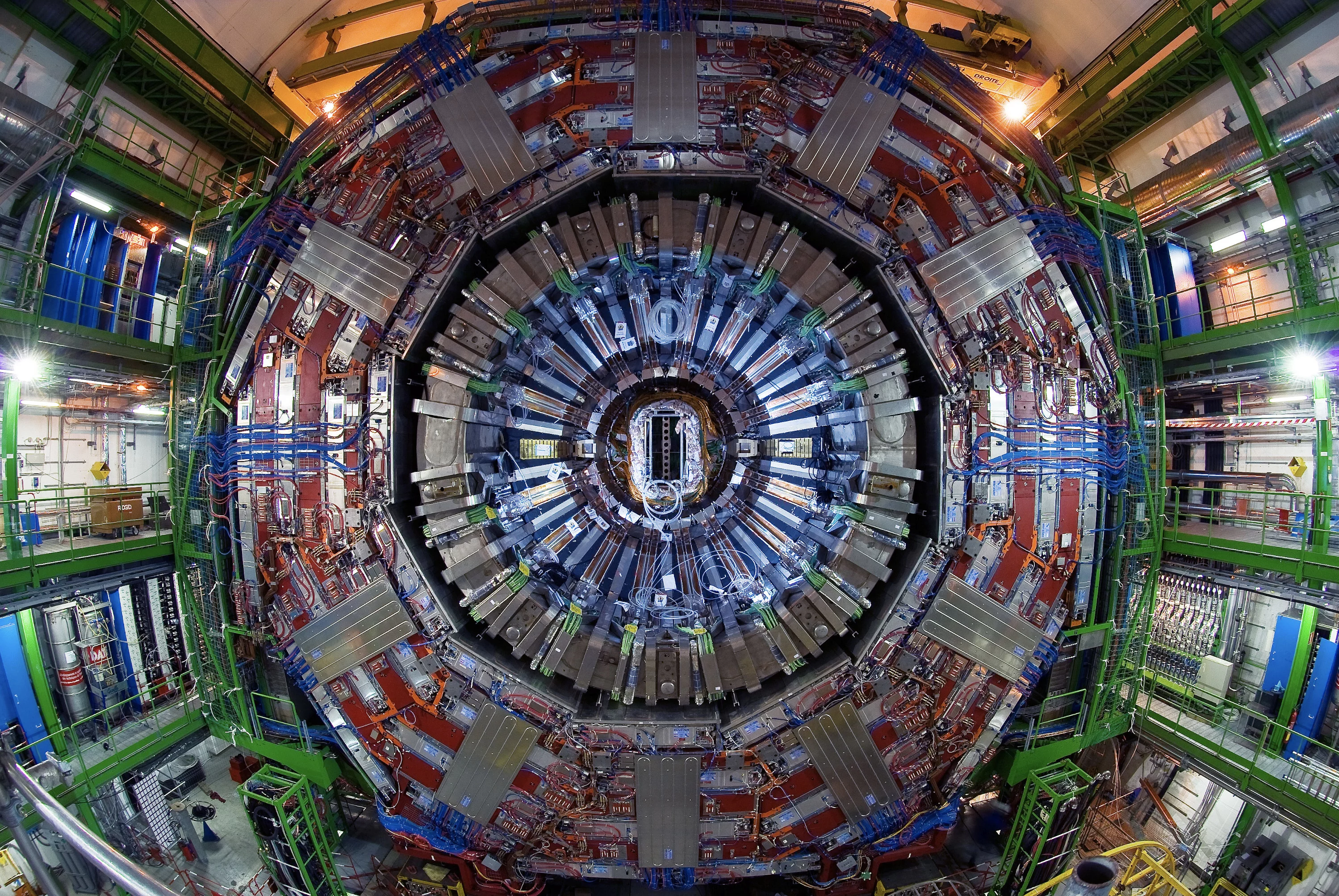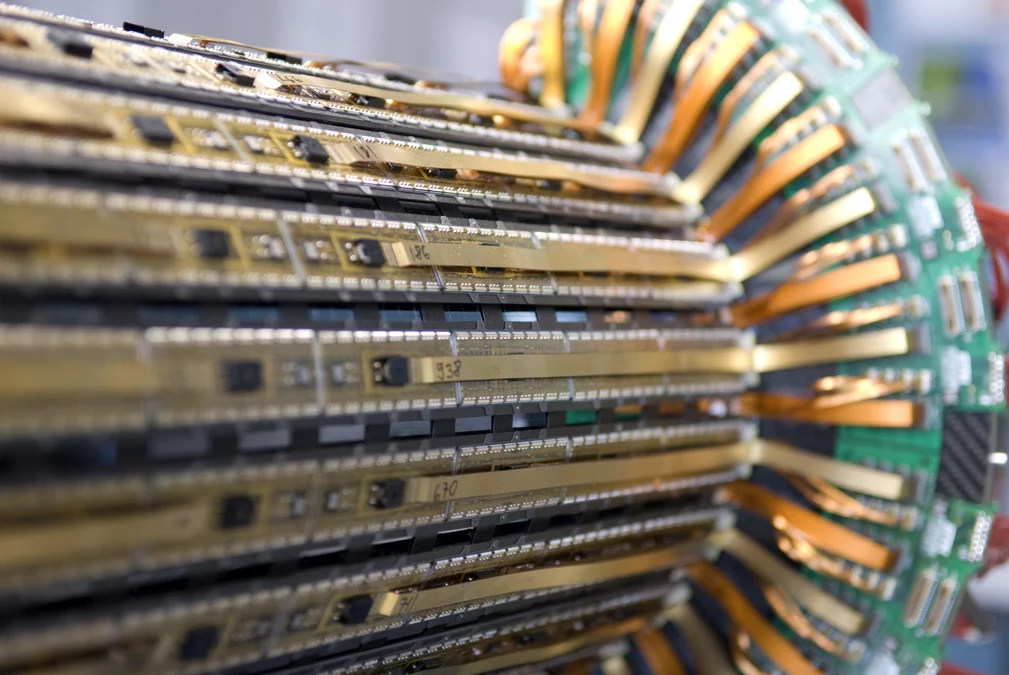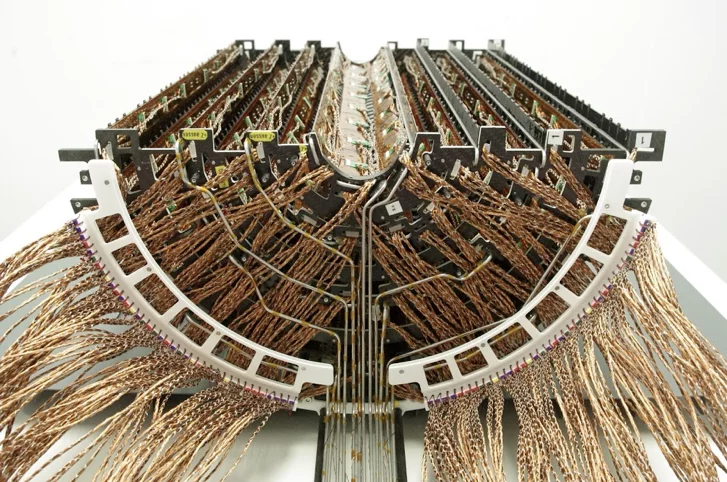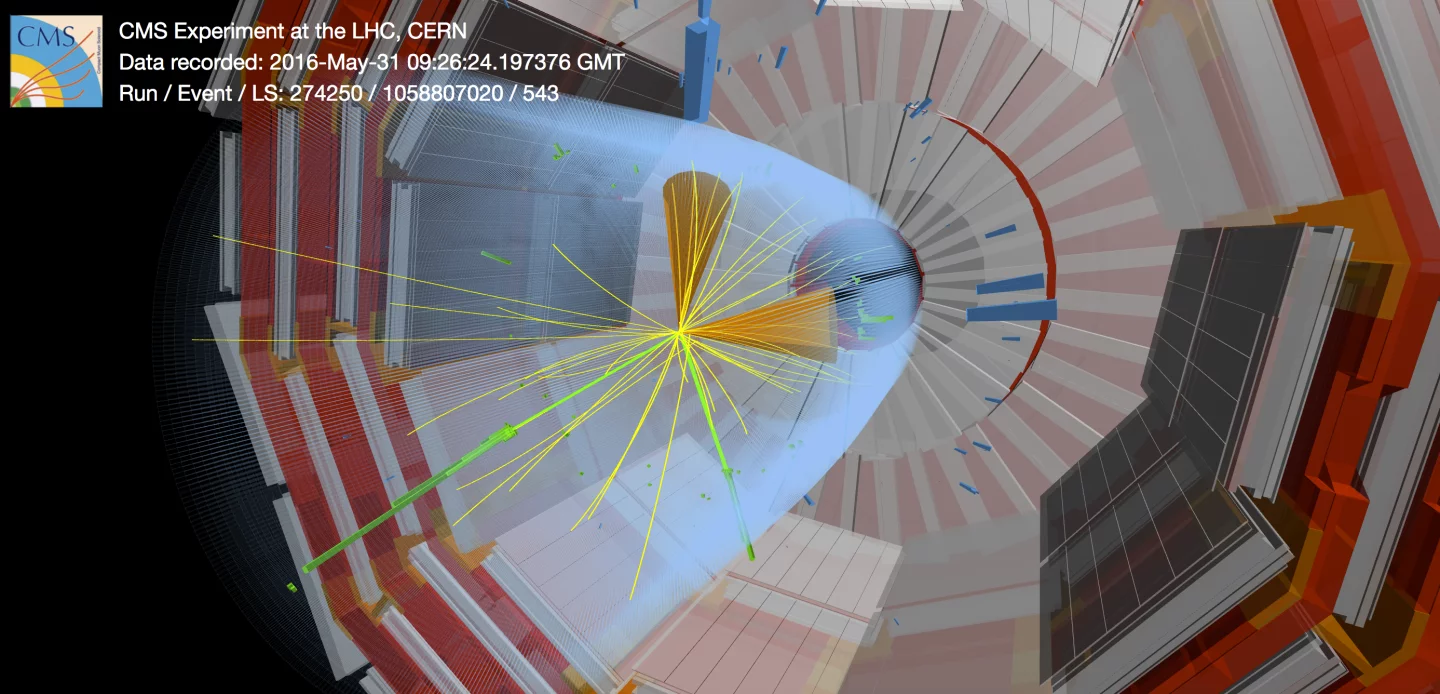The High Energy Physics Group addresses fundamental questions concerning the structure of matter at high energies. This includes searches for yet undiscovered particles as well as precision measurements which might give hints to new physics which is not described by the standard model of particle physics.
The group performs research with the CMS experiment at the CERN Large Hadron Collider (LHC) and plays an active role in detector development, operation and data analysis. We make leading contributions to the CMS tracking system, for which we have conceived and built the innermost part, the CMS barrel pixel detector. The pixel detector delivers high-precision spatial information about the passage of charged particles produced in proton-proton collisions for track and vertex reconstruction. The high density of particles close to the collision point poses stringent requirements on the design of the pixel detector system in terms of granularity, resolution, data rates and radiation tolerance. In order to meet these requirement technological innovation in the development of readout electronics, sensors and interconnection techniques is needed.
The original CMS barrel pixel detector has been built at PSI and installed in CMS in 2008. It has shown an excellent performance and became a key device in the event reconstruction at CMS. In 2017, we replaced the original pixel detector with an upgraded system, called CMS Phase-1 pixel detector, to maintain the excellent performance in view of the higher luminosities delivered by the LHC in recent years. Compared to the original pixel detector, the Phase-1 upgrade detector has a better tracking performance and increased hit coverage with an additional sensitive layer. The highlight of the Phase-1 pixel detector upgrade is the design of radiation tolerant pixel read out chips (ROCs) with low pixel thresholds, low noise behavior and high hit rate capabilities. Another major achievement is the development and and construction of a very light, low material budget detector mechanics and cooling system. Our group has been the main contributor to the design and construction of the CMS Phase-1 pixel detector and we successfully installed the new detector into CMS ("Heart surgery at the LHC"). During the data-taking period, we are responsible for the calibration and the operation of the pixel detector.
Furthermore, the group is involved in the analysis of the CMS data making special use of the pixel detector. A particular focus is on indirect searches for new physics through precision measurements of rare B meson decays. More recently we also embarked on in-depth investigations of the Higgs boson in processes where the Higgs boson is produced in association with heavy quarks. Using the proton-proton collision data that we collected so far with the CMS experiment together with the significantly increased data set that is expected at HL-LHC, we aim to further improve the precision and sensitivity of these crucial tests of the standard model at the energy frontier.





